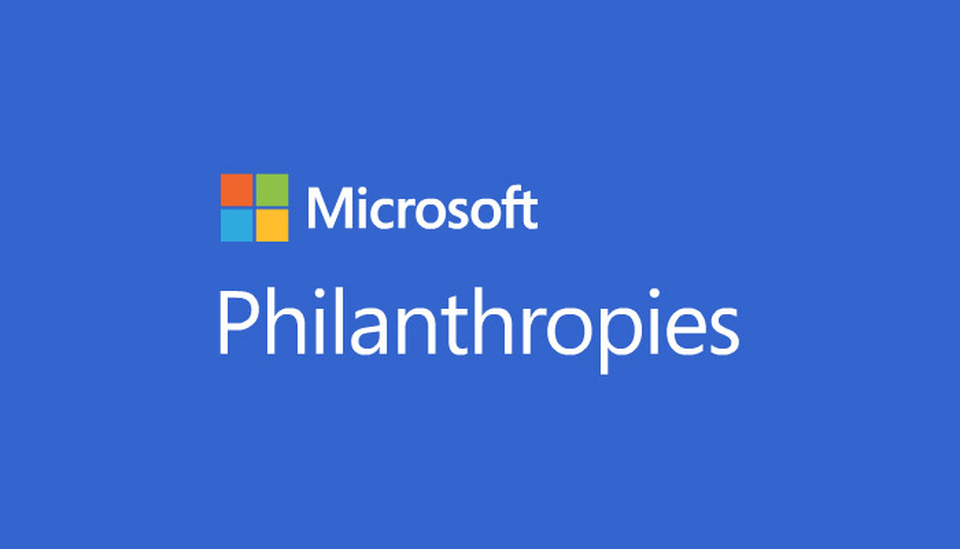advertisement
KRCS among US$1 billion non-profits support from Microsoft
Kenya Red Cross Society (KRCS) is among the non-profit organisations benefiting from Microsoft Philanthropies’ commitment to donate $1 billion in cloud computing resources…

Kenya Red Cross Society (KRCS) is among the non-profit organisations benefiting from Microsoft Philanthropies’ commitment to donate $1 billion in cloud computing resources to help digitally scale their impact and better serve public good.
The Kenya Red Cross Society (KRCS) is benefiting from the commitment to digitally transform their operations tapping from Microsoft’s cloud resources as well as human resources as, Microsoft staff volunteers helped the KRCS IT team develop a three-year business plan and adopt Microsoft services, the non-profit’s efficiency was positively impacted.
“We’ve seen a significant improvement in our communication and collaboration across our branches, and the management of our systems and processes is much more streamlined,” says Dr. Abbas Gullet, Secretary General, KRCS. “This impact everything from our efficiency during crises such as the Horn of Africa famine, and even the way we run our ambulance and hospitality services.”
advertisement
Microsoft Philanthropies made the commitment to donate the $1 billion in January 2016 meaning that they have reached their target a year ahead of schedule. Building on this effort, the company now aims to triple the number of non-profits served over the next three years, to over 300,000 organisations. Leading this commitment is a new organisation within Microsoft Philanthropies, called Technology for Social Impact.
The team will help non-profits move to the cloud and digitally transform to raise funds, improve productivity, accelerate innovation and ultimately have a greater impact on their beneficiaries.
In a similar mission to improve the lives of Kenyans, I Choose Life (ICL) Africa aims to provide a globally competitive education, training, research and innovation system for sustainable development. One of the ways it is achieving this is through the development of its Biometric Student Information Management System (BioSIM), using biometric tools offered by Microsoft Azure.
advertisement
A lack of Unique Personal Identification (UPI) and reliable, timely data makes it difficult to track the total number of learners in the Kenyan education system, as well as their attendance and academic progression. BioSIM is a real-time web and mobile application-based School Information Management System, which automates, simplifies and enhances student and school management, governance and accountability in education for Kenya’s sustainable development. It has now been deployed in more than 100 schools across Kenya.
“We’re inspired by these kinds of stories, as they demonstrate the potential of technology to help transform how non-profits pursue their missions and drive impact. Too many non-profits have been left behind in the digital revolution that’s reshaping business and society, but many have a strong desire to adopt the latest technology. That’s why we’re working to help more non-profits around the world more fully leverage the power of the cloud.” Sebuh Haileleul, Microsoft Country Manager for East Africa
“We’re inspired by these kinds of stories, as they demonstrate the potential of technology to help transform how non-profits pursue their missions and drive impact,” says Sebuh Haileleul, Microsoft Country Manager for East Africa. “Too many non-profits have been left behind in the digital revolution that’s reshaping business and society, but many have a strong desire to adopt the latest technology. That’s why we’re working to help more non-profits around the world more fully leverage the power of the cloud.”
The Technology for Social Impact team will also build comprehensive new offerings for non-profits. These begin immediately with Microsoft 365 for Non-profits, which includes Office 365, Windows 10 and Enterprise Mobility + Security.
advertisement
With millions of non-profits serving communities around the world, these tools can help them bring the power of Microsoft’s most advanced technologies to bear on some of the world’s toughest problems.
“This is only the beginning,” says Haileleul. “In the coming months we will build upon these offers and on our longstanding commitment to non-profits. We will also engage with start-ups and incubators to enable them to build solutions that meet non-profits’ unique needs.”
To find out more about how non-profits have made an impact with Microsoft’s cloud technologies, as well more details on the new offers, click here.